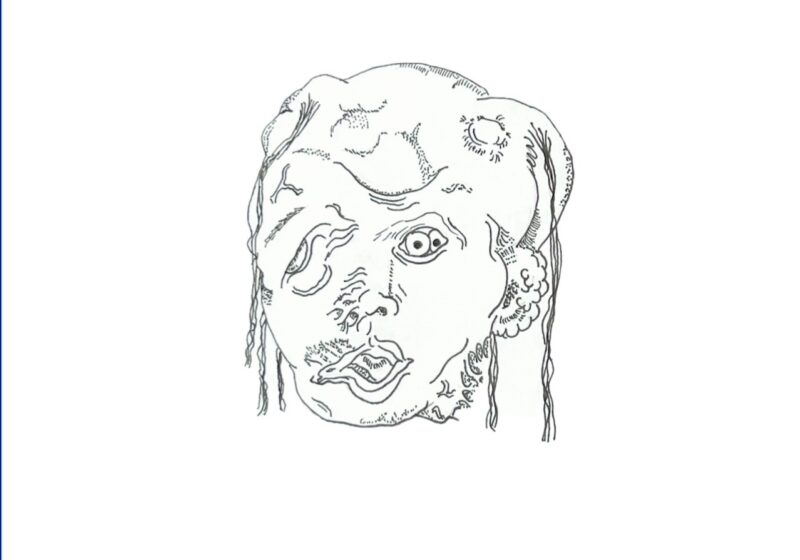“If you wanna make change, it’s gon’ take commitment / Some people enslaved by they religion,” rhymes Joey Bada$$ in the standout song “Temptation” from his sophomore album, “All-Amerikkkan Bada$$,” released last Friday.
It’s an insight the 22-year-old Brooklynite could use himself, and for parts of his new 49-minute full-length, the follow-up to 2015’s “B4.DA.$$,” he seems to do just that.
About half of “AABA,” as Joey abbreviated the album pre-release, forgoes the dusty boom-bap that made up most of his last album and breakout mixtapes and adopts a smoother, funkier, jazzier sound. There’s flashes of what Joey can do when he loosens up on his ‘90s revivalism.
Other rap favorite Kendrick Lamar might not have released his forthcoming album the same day as Joey’s, as many critics thought, but his sonic influence is here.
Take the instrumental of track two, “For My People,” which is filled with mellow keys, a weaving sax, and a muted synth with a funk flavor that twists along behind the drums—which knock.
Some of the lyrics are run-of-the-mill inspirational spiel, but there are sly rhymes in the second verse. “Music is a form of expression / I’ma use mine just to teach you a lesson,” he raps, starting a slew of bars that use that slant rhyme scheme: weapon, manifested, resting, direction, section, etc.
“Temptation” grabs guitar licks that would’ve been at home on Kendrick’s “To Pimp A Butterfly,” and mixes them with horns that could’ve been on a Chance the Rapper project, with a crescendoing chorus that finds Joey, our resident Flatbush spitter, singing.
Stoned sad-sack troubadour Kid Cudi, of all people, comes to mind in hearing the hook and pre-chorus—the latter is downcast, Joey stretching the syllables of his confessional lyrics to a quiet croon, and is minimally backed. The chorus it transitions into is booming, all layered vocals and brass and fanfare.
Toward the end of the track, a gospel choir rises through the beat, more Chance. He, Kendrick, and Cudi again come to mind in the vocal tics of “Temptation.” Each verse ends with a yelped “ah,” something the first two are known to throw in their songs. At the end of the second bar of each verse, he hum-growls like Cudi.
None of this means the song sounds like a rip-off, though. It’s head-bobbing, dope, and one of the best showcases on the tape of how Joey can progress. “I just take the pain and a paint a picture / Voices in my head, I hear the whispers / When I feel this way, inhale the swisher / Or I sip the liquor, ah,” he raps, his voice swelling with emotion.
That’s somewhat the problem with other songs here, though.
“Ring the Alarm,” featuring comrades Meechy Darko, Nyck Caution, and Kirk Knight (who produced on many of the album’s songs), bangs, sure, but if I wanted to listen to ‘90s-style rap I’d listen to, well, ‘90s rap. This isn’t to say Joey and crew are bad, because they aren’t. Their forebearers are just better.
Joey and the latter two in particular fall in this way—they’re members of the Pro Era group that prizes ‘90s purism and does little to innovate. Meechy Darko—whose delivery is gruff and guttural and captivating and who should have had a verse on the song—escapes this trap in his other work. His trio Flatbush Zombies escape this trap by matching the bars-first approach of Pro Era with trap psychedelia and horrorcore mysticism. It’s certainly a more interesting approach than this song, and the one after it, and the J. Cole-assisted one two after that.
Joey’s mic presence and flow are impressive, and so are many of the political lyrics of this record. He can play the smooth-talking wordplayer, the aggressive revolutionary, the bootstraps kid. He takes shots at President Donald Trump and police brutality, and conveys what could be called a diet version of the political themes of Kendrick’s “Butterfly”—we need to dismantle institutional racism, but the community needs to help itself, too.
Joey’s approach is less expensive and more interested in wordplay than novelistic layers, but still entertaining: “Holy cross on my back got a bullseye on it / I gotta get stoned to fulfill my moment,” he raps on “Good Morning Amerikkka,” the intro track, in a slick double entendre. The lines, “Nowaday they hangin’ us by a different tree / Branches of the government, I can name all three / Judicial, legislative and executive,” off “Babylon” are jarring, as is his strained, near-shout voice on the track, which is easily one of his best performances.
But you want more from this talented young emcee, especially because he shows he’s able to give it.
“Devastated,” the album’s lead single, tells us as much: it’s a complete departure from his past work, catchy, pop-sensible, blare-out-your-windows-while-driving caliber, built around a sample of the classic horns of OutKast’s “SpottieOttieDopaliscious.” His belted hook about perseverance is infectious, and with the melodic cadence of his verses, the song has an undeniable bounce.
That song fit snugly in the first half of the album, the more progressive-sounding half, but clashes with songs like “Rockabye Baby,” the ScHoolboy Q–featuring sledgehammer, and the closer, “Amerikkkan Idol,” which ends with a sprawling, spoken-word condemnation of the U.S. government and call to revolutionary action: “Start a Civil War within the USA amongst black and white and those alike / They are simply pushin’ us to our limit so that we can all get together and get with it / They want us to rebel, so that it makes easier for them to kill us and put us in jails.”
So his next album could use a more uniform sound.
On a radio show in late March, Joey laid down a blistering verse over song of the year contender “Mask Off,” by Atlanta hitmaker Future (produced by Metro Boomin). It was a magic combo—a rapper’s rapper tearing up a trap beat. On April 1, he asked fans via Twitter if they wanted him to “keep slaying industry [rappers’] beats.”
The short answer is yes.
With parts of “ABBA,” Joey shows that he can pick up the melodic cues and fresher sounds of his contemporaries while not giving up his golden-era flow and focus on lyrics. If he can do that for a full project, he’ll have a better claim to sitting among this generation’s best.




